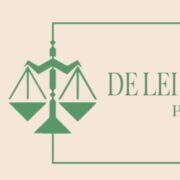Best Bail Bond Service Lawyers in Netherlands
Share your needs with us, get contacted by law firms.
Free. Takes 2 min.
Or refine your search by selecting a city:
List of the best lawyers in Netherlands
About Bail Bond Service Law in Netherlands
The concept of bail bonds as understood in many countries, particularly in the United States, does not exist in the Netherlands. In the Netherlands, pre-trial detention and release procedures operate differently. The Dutch legal system allows for the possibility of a suspect being released on certain conditions, such as a financial guarantee, but this is not commonly handled by private bail bond services. Instead, it is managed directly by the judicial system. The emphasis is on ensuring the suspect's appearance in court and the protection of the public, rather than on commercial bail services.
Why You May Need a Lawyer
Although traditional bail bond services are not present, there are several situations where legal assistance may be necessary:
- Pre-Trial Detention: If you or a loved one is detained, a lawyer can argue for release conditions or challenge the detention.
- Financial Guarantees: Legal advice may be needed to navigate or negotiate any financial guarantees imposed by the court.
- Understanding Rights: A lawyer can help understand your rights and obligations during the pre-trial phase.
- Appealing Decisions: A lawyer can assist in appealing unfavorable decisions related to detention or conditions of release.
Local Laws Overview
In the Netherlands, all decisions regarding pre-trial detention and the conditions of release lie with the judicial system. Detention will be considered based on the severity of the crime, risk of flight, and potential for re-offending or interfering with the investigation. Possible conditions for release can include surrendering passports, house arrest, or reporting to police regularly. Understanding the nuances of these legal processes often requires legal expertise.
Frequently Asked Questions
What is the alternative to bail bonds in the Netherlands?
Instead of bail bonds, the Dutch system may allow release under conditions set by the court, including a financial guarantee paid directly to the court.
Can I be released from detention before the trial?
Yes, depending on the circumstances and at the court's discretion. A lawyer can argue for your release and propose conditions.
What factors influence the court's decision on pre-trial release?
The court will consider the severity of the charges, your criminal record, risk of flight, and whether release might hinder the investigation.
Is it mandatory to have a lawyer for these proceedings?
While not mandatory, having a lawyer can significantly help in understanding and navigating the complex legal system.
How are financial guarantees determined?
The court sets the amount based on factors like the offense severity and personal circumstances. Legal help can influence and interpret these decisions.
What happens if I fail to appear in court?
Failing to appear can result in arrest and losing any financial guarantee paid. Legal advice is crucial in such situations.
Are there any reforms expected in the bail system?
Reforms can happen, but any changes to this system would likely focus on judicial procedures rather than introducing private bail services.
How does pre-trial detention impact a suspect's case?
It can affect how a case is prepared and the defense strategy. Lawyers work to minimize negative impacts.
Can restrictions be relaxed once imposed?
Yes, with legal representation, there may be avenues to request a reevaluation of conditions based on changing circumstances.
What should I do if I disagree with the pre-trial release conditions?
It is advisable to consult with a lawyer who can assist in appealing or negotiating the terms of the release.
Additional Resources
The following resources and organizations may provide additional information and support:
- The Dutch Legal Aid Board (Raad voor Rechtsbijstand)
- Local Bar Associations (Orde van Advocaten)
- Netherlands Judiciary (De Rechtspraak)
- The Law Society of the Netherlands
Next Steps
If you find yourself or a loved one in need of legal assistance in relation to pre-trial detention in the Netherlands, you should:
- Contact a lawyer specializing in criminal law who understands the local legal system and can offer guidance on release options.
- Gather any relevant documentation that may assist in legal proceedings or negotiations for release.
- Consult with legal aid services if financial constraints are a concern, to ensure you have access to necessary legal support.
- Stay informed about your rights and obligations throughout the legal process.
Lawzana helps you find the best lawyers and law firms in Netherlands through a curated and pre-screened list of qualified legal professionals. Our platform offers rankings and detailed profiles of attorneys and law firms, allowing you to compare based on practice areas, including Bail Bond Service, experience, and client feedback.
Each profile includes a description of the firm's areas of practice, client reviews, team members and partners, year of establishment, spoken languages, office locations, contact information, social media presence, and any published articles or resources. Most firms on our platform speak English and are experienced in both local and international legal matters.
Get a quote from top-rated law firms in Netherlands — quickly, securely, and without unnecessary hassle.
Disclaimer:
The information provided on this page is for general informational purposes only and does not constitute legal advice. While we strive to ensure the accuracy and relevance of the content, legal information may change over time, and interpretations of the law can vary. You should always consult with a qualified legal professional for advice specific to your situation.
We disclaim all liability for actions taken or not taken based on the content of this page. If you believe any information is incorrect or outdated, please contact us, and we will review and update it where appropriate.
Browse bail bond service law firms by city in Netherlands
Refine your search by selecting a city.

















